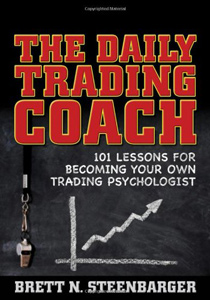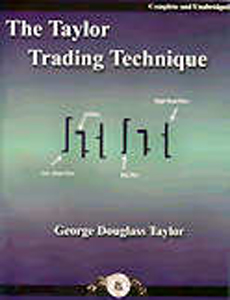How to Buy & Sell Shares

Further Reading
Whether you phone through your orders or do it online, being part of the sharemarket and buying and selling shares has never been easier. So you want to invest in the sharemarket and take a slice of what you hope will be some serious profits? Firstly, consider why you’re investing and take a look at your long-term financial goals. Are you investing for capital growth, income or a combination of both? What are your spending commitments? What can you afford to spend initially and then on an ongoing basis? What is your investment time frame – 5, 10, 20 years?
Set yourself some initial goals, stick to them and re-evaluate them further down the track when you have some investing experience under your belt and honed your buying and selling skills. The next step, and indeed the hardest part for many, is choosing the company or companies you want to invest in. There must be something about the product or service the business provides which appeals to you, so look at sectors and companies that match your goals. And always remember not to “put all your eggs in the one basket”.
Some companies will prove a lot riskier to invest in than the more high profile “blue chip” companies and although the old adage of “the greater the risk, the greater the return” is often bandied around when it comes to investing, it must be remembered that high risk does not necessarily mean high returns.
To start with you can invest as little as $1000 in shares. However, ASX says a large number of people start with more so they get greater diversification. Alternatively, you may have been given shares as a present or received them through the demutualization of a company. Regardless, if you don’t already have a stock broker, you need one. In Australia, buying and selling shares usually occurs through a broker. Brokers are split up into two categories – full service and non-advisory.
Non Advisory Discount Brokers vs. Full Service Brokers
A full service broker will offer advice on whether they think that the stock you’ve got your heart set on is overpriced or good value. They offer, for a fee, research and advice on stocks and upcoming floats. Also, they can tailor an investment plan for you. For these reasons, a full service broker commands a higher fee than other types of brokers. Non-advisory brokers, or discount brokers as they are sometimes called, will buy and sell your shares for you, but they don’t offer direct advice on stock selection. Instead, what many brokers, such as CommSec, will offer as an alternative is extensive information and research tools that can then help you choose which companies and sectors to invest in.
CommSec provide quarterly reports that provide information on what sectors are doing well, in-depth company information concerning financial histories, key announcements and research reports. Discount brokerage charges are low compared to full-service brokerage. Generally from $20 for each transaction depending on the dollar value of the shares you are trading.
Buying Shares through Company Floats
There is one exception to needing a broker to buy shares. That is, when you purchase shares in a float, which is also referred to as an IPO or New Issue. A float occurs when a company chooses to list on a stock exchange. It is also referred to as “going public” and means the company is offering new shares to the public at a set price. These offers are often attractive to investors but it is always worth considering why the company chose to list, and ask yourself – are the people who built the company up staying on, what are the company’s long term goals an so on? You need to read the prospectus, which the company will be happy to provide, fill in the application provided and send a cheque or attach your banking details if you wish to purchase. Whether you receive an allocation will depend on the overall demand for the offer.
Sometimes you may receive an offer to buy shares you already hold in a company directly from that company. This can be the case when a company wants to buy back some of your shares. This is usually a win-win for the investor, because a stock will often jump when news of a buyback gets out and people anticipate that less stock will mean profits and will not have to be split in as many ways. In other words, this should translate to bigger dividends. Also, if you choose not to sell, you will still have the same number of shares which, provided the shares moved up in anticipation of the buyback, will be worth more.
Remember to do Your Own Research
Whether you have a full-advisory broker or use a discount broker you can’t expect every stock will be a good investment so it’s a good idea to always do your own research, including fundamental and technical analysis. Fundamental analysis involves studying company profit reports. These days most companies make available profit reports and annual reports on their websites. If not, you can find a listed company’s financial reports and stock market updates on both the ASX and CommSec websites. Technical analysis is a little more complex and involves using charts of historical prices to forecast future prices. And you can always head down to your local library or bookshop and pick up books by successful investors such as Warren Buffet, the world’s most successful share investor.
When investing in shares it is useful to understand some of the terms you will be using. Learn well and prosper.
Before you Buy or Sell Shares consider
- Does your broker require a minimum order amount?
- If you are buying, how will you pay?
- If selling, your broker needs the HIN or SRN.
- How do you want the sale proceeds to be paid?
- Number of shares: specific number or, if you are buying, a maximum dollar amount.
- Share price: at market order or limit order? Market orders are more likely to result in a trade. For limit orders, write down the price.
- Duration of the order: is your order just for this trading or do you want your broker to resubmit it when the market opens the next day?
- How will you receive the contract note: post or e-mail?
- How to Trade Forex and Gold Options
- How to Trade the Gold Price and Profit!
- Forex Trading the EUR/USD Pair € EURO and $ US Dollar
- How to Trade Stock Market Indices S&P500
- How to Trade Crude Oil
- Forex Trading Psychology
- What Are Broker Recommendations?
- Free Tickets to Trading & Investing Seminar & Expo ($18) Brisbane 2013
- Stock Calc App
- All About Warrants
- Introduction to Exchange Traded Funds
- Introduction to Exchange Traded Funds: Features
- Introduction to Exchange Traded Funds: Domestic ETFs
- Introduction to Exchange Traded Funds: International ETFs
- Exchange Traded Commodities
- Australian Stock Scan
- Australian Online Share Trading
- List of Trading Books
- Interesting Thoughts about the Australian Dollar
- What's the Meaning of Hawkish?
- Do You Know How To Use the P/E Ratio
- Trading, Religion and Politics - Do They Have Anything in Common?
- Shares that are Volatile that Double and Half in the Short Term
- Telstra (TLS) T3
- Margin Call by E-mail
- The Cost of Holding a Position
- Lack of Disclosure: Compensation from ASX Listed Company
- Unrealistic Returns and Benchmarks
- CMC Markets Down
- Quality versus Quantity Forex Trading
- Woolworths 1H Sales $30.7bn up 3.2%
Date added 31-01-2013 - ASIC Fines CommBank's CommSec
Date added 25-09-2012 - Industry Super Network Calls to Ban High Frequency Trading (HFT)
Date added 22-09-2012 - NAB Launches Online Share Trading Platform
Date added 19-09-2012 - Reserve Bank of Australia Says 23 Countries Holding AUD
Date added 18-09-2012 - Australia Post Digital Mailbox
Date added 10-09-2012 - Winners and Losers of Trading for Week 2
Date added 16-01-2012 - 2012's First Week of the Best and Worst Traded Stocks
Date added 09-01-2012 - 2011's Last Best and Worst Traded Stocks
Date added 05-01-2012 - Best and Worst Pre-Christmas Traded Stocks
Date added 30-12-2011 - Trading Winners and Losers for Dec. 12-16
Date added 19-12-2011 - Best and Worst Traded Stocks for Dec. 5-9
Date added 13-12-2011 - Top 3 Best and Worst Traded Stocks
Date added 05-12-2011 - ASX Glitch Trading Halt
Date added 27-10-2011 - Worst Trade Stocks (and the Best)
Date added 06-08-2011
Top 150 Public Companies Listed on the Australian Stockmarket as at 29/05/2009
- BHP Billiton
- Westpac Banking Corporation (WBC)
- Commonwealth Bank of Australia (CBA)
- National Australia Bank (NAB)
- Telstra (TLS)
- ANZ
- News Corporation (NWS)
- Woolworths Limited(WOW)
- Woodside Petroleum Limited (WPL)
- Rio Tinto
- Westfield Group (WDC)
- Westfarmers Limited (WES)
- QBE Insurance
- CSL
- Newcrest Mining Limited (NCM)
- Origin Energy Limited (ORG)
- Santos Limited (STO)
- AMP Limited (AMP)
- Macquarie Group (MQG)
- Foster’s Group Limited (FGL)




